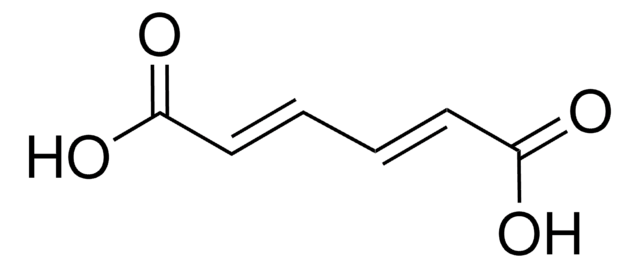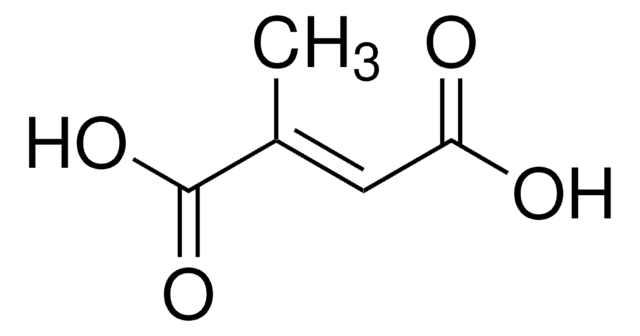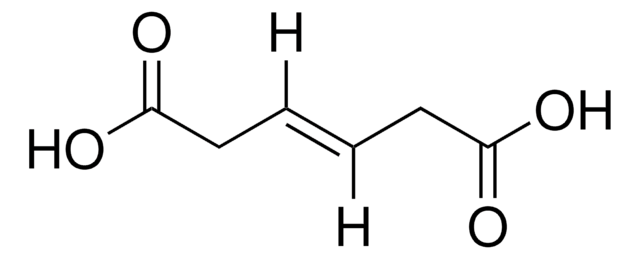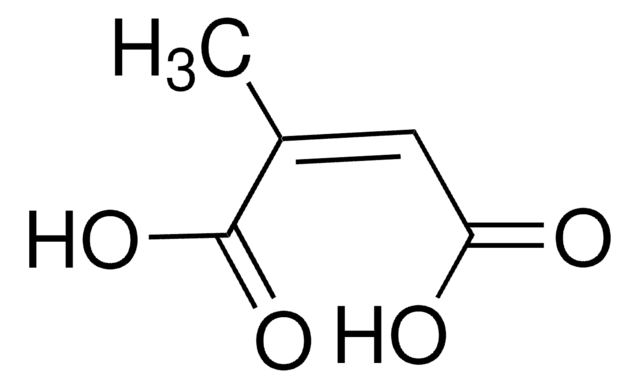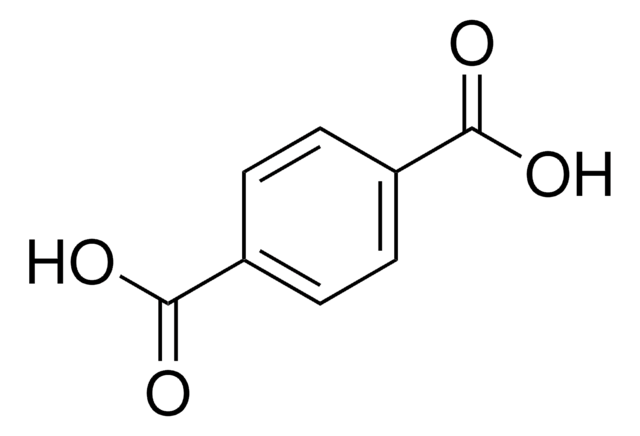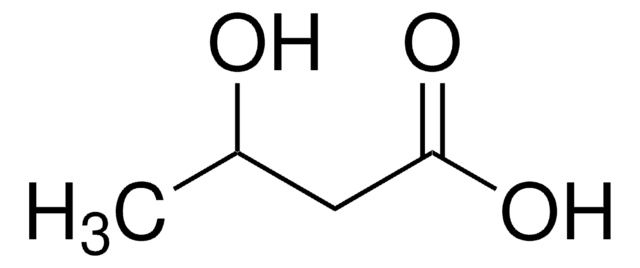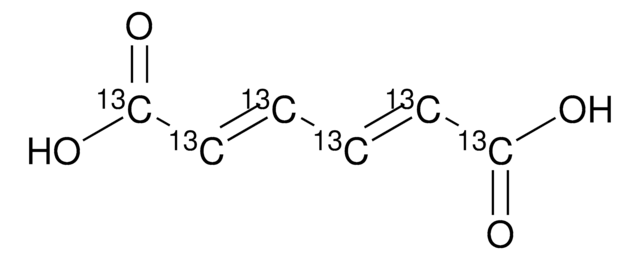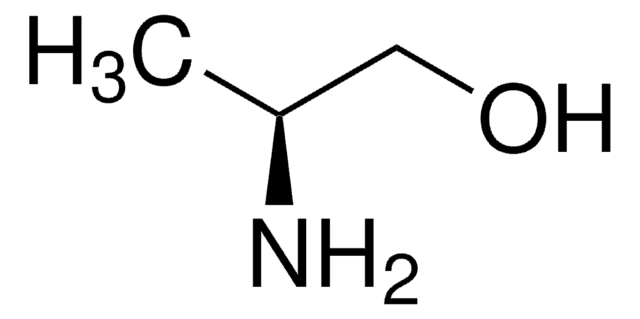15992
cis,cis-Muconic acid
≥97.0% (HPLC)
Sinonimo/i:
cis,cis-2,4-Hexadienedioic acid
Autenticatiper visualizzare i prezzi riservati alla tua organizzazione & contrattuali
About This Item
Formula empirica (notazione di Hill):
C6H6O4
Numero CAS:
Peso molecolare:
142.11
Beilstein:
1722246
Numero MDL:
Codice UNSPSC:
12352100
ID PubChem:
NACRES:
NA.22
Prodotti consigliati
Livello qualitativo
Saggio
≥97.0% (HPLC)
Punto di fusione
194-195 °C (lit.)
Gruppo funzionale
carboxylic acid
Stringa SMILE
OC(=O)/C=C\C=C/C(O)=O
InChI
1S/C6H6O4/c7-5(8)3-1-2-4-6(9)10/h1-4H,(H,7,8)(H,9,10)/b3-1-,4-2-
TXXHDPDFNKHHGW-CCAGOZQPSA-N
Categorie correlate
Descrizione generale
cis,cis-Muconic acid is a naturally-occurring organic acid. It is also referred as 2E,4E-hexa-2,4-dienedioic acid. It is used in the manufacture of several widely-used consumer plastics. Its microbial production via extending shikimate pathway has been reported.
Applicazioni
- Biotechnological production methods: Research highlights various biotechnological approaches to enhance the synthesis of cis,cis-muconic acid, which can serve as a precursor for biodegradable polymers and other bio-based plastics, aligning with sustainable chemical manufacturing goals (Son et al., 2023).
- Industrial application in polymer industry: The potential application of cis,cis-muconic acid in the polymer industry is explored, focusing on its role as a precursor for manufacturing eco-friendly, bio-based plastics, thereby contributing to sustainable industrial practices (Palumbo et al., 2024).
Avvertenze
Warning
Indicazioni di pericolo
Consigli di prudenza
Classi di pericolo
Acute Tox. 4 Oral - Eye Irrit. 2 - Skin Irrit. 2 - STOT SE 3
Organi bersaglio
Respiratory system
Codice della classe di stoccaggio
11 - Combustible Solids
Classe di pericolosità dell'acqua (WGK)
WGK 3
Punto d’infiammabilità (°F)
Not applicable
Punto d’infiammabilità (°C)
Not applicable
Dispositivi di protezione individuale
dust mask type N95 (US), Eyeshields, Faceshields, Gloves
Scegli una delle versioni più recenti:
Possiedi già questo prodotto?
I documenti relativi ai prodotti acquistati recentemente sono disponibili nell’Archivio dei documenti.
I clienti hanno visto anche
Ahmad A Deeb et al.
Analytical and bioanalytical chemistry, 408(16), 4219-4232 (2016-04-22)
The presence of organic micropollutants and their transformation products (TPs) from biotic and abiotic processes in aquatic environments is receiving intense public and scientific attention. Yet a suitable sample preparation method that would enable extraction and enrichment of a wide
Arnon Setsungnern et al.
Plant physiology and biochemistry : PPB, 120, 95-102 (2017-10-11)
Benzene, a carcinogenic compound, has been reported as a major indoor air pollutant. Chlorophytum comosum (C. comosum) was reported to be the highest efficient benzene removal plant among other screened plants. Our previous studies found that plants under light conditions could
Bo Wang et al.
Journal of hazardous materials, 373, 29-38 (2019-03-23)
Phenol is a common water pollutant because of its broad industrial applications. Biological method is a promising alternative to conventional physical and chemical methods for removing this toxic pollutant from the environment. In this study, two metabolic modules were introduced
Jing Sun et al.
Journal of biotechnology, 280, 49-54 (2018-06-10)
Adipic acid (AA) is an important dicarboxylic acid used for the manufacture of nylon and polyurethane plastics. In this study, a novel adipic acid biosynthetic pathway was designed by extending the cis,cis-muconic acid (MA) biosynthesis through biohydrogenation. Enoate reductase from
Yuheng Lin et al.
Metabolic engineering, 23, 62-69 (2014-03-04)
cis,cis-Muconic acid (MA) and salicylic acid (SA) are naturally-occurring organic acids having great commercial value. MA is a potential platform chemical for the manufacture of several widely-used consumer plastics; while SA is mainly used for producing pharmaceuticals (for example, aspirin
Il team dei nostri ricercatori vanta grande esperienza in tutte le aree della ricerca quali Life Science, scienza dei materiali, sintesi chimica, cromatografia, discipline analitiche, ecc..
Contatta l'Assistenza Tecnica.